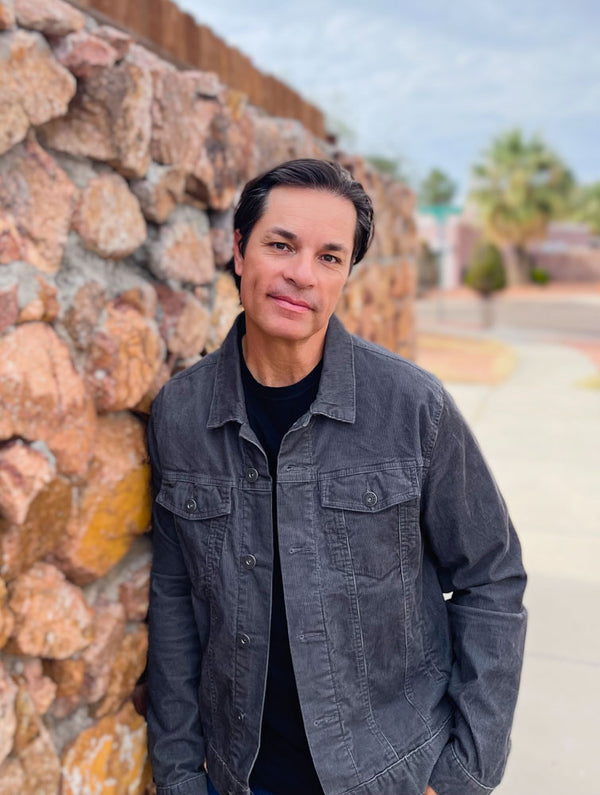Latinx Heritage Month is Here: Meet Phillip D. Cortez
Latinx & Hispanic Heritage Month (LHHM) is celebrated annually from September 15 to October 15 to acknowledge the history, culture, and contributions of Americans whose ancestry can be traced to over 20 countries in Latin America, including Mexico, Central and South America, and the Caribbean.
In celebration of LHHM, we are excited to introduce Phillip D. Cortez, author of our upcoming picture book, I’ll Be the Moon: A Migrant Child’s Story. Join us as Cortez shares his authorship experience, the gentle story behind his book, and more. Stick around for a downloadable reader guide near the end!

What inspired you to start writing I’ll Be the Moon?
I remember taking my youngest daughters fishing along the banks of the Rio Grande near my mother’s house (she came with us). It was early evening when you could see the last remnants of sun while the moon began its nightly climb. My mother was helping my youngest daughter with her pole and the moon shone brightly above them. The first thought that came to mind was “mother moon.” Everything started to flow from there. The moon is this, the moon is that. The concept of a mother and her daughter under a moonlit sky was really born right there.
The language used in I’ll Be the Moon is lyrical and poetic to its core. Share your writing process. Were there any challenges? If so, how did you remedy them?
Since I was a little kid, I wished that I could draw (to this day, circles look like potatoes). This is probably why I try to be descriptive with my writing. I try to paint the pictures with my words. I tend to work backwards with an idea of what a project could look like and how it can be presented. Perhaps writing this way, with this frame of mind, helps me along the way when I am searching for better ways to explain or describe.

The moon is a central symbol to the book: “And I have come to realize that the moon is love. / Her crescent smile is that of my father, / with a twinkle of mischief and laughter.” What does the moon represent to you?
For me, I go back to that moment on the Rio Grande in El Paso’s Upper Valley. “Mother moon” teaching her grandkid how to fish, watching over, protecting, etc. This all represents love.
What internal or external tools helped you approach the themes discussed in I’ll Be the Moon?
Although this is delivered as a children’s book, I truly think that this is a book for everyone of any age. El Paso - the name literally means The Pass - is right on the border and we are no strangers to the immigration issues. So, I drew on this. And the more I paid closer attention to it, the more I was horrified at the negative attitudes some people have towards immigrants. I try not to get too political, but a former president (who’s trying to run again in 2024), recently stated that immigrants “were poisoning the blood of our country.” This inflammatory rhetoric only weakens our country. Meanwhile, immigrants continue to strengthen it.
We need more empathy. For this project, I just want people to read this book and understand that this is about a little girl who wants to be with her dad. It’s a love story.

A Spanish edition of I’ll Be the Moon is releasing early 2024. Why is it important that Spanish-translated stories, specifically those written by Latinx authors, be published?
Representation is extremely important. It would be a shame for us to celebrate this book here in the US while Spanish-speaking readers couldn’t. I have a lot of family in Mexico and I want them to be proud of this project too.
What do you hope readers take away from this story?
I want any reader, no matter where they come from, to understand how important it is to be empathetic to the plights of others. There’s a line in the book that says, “Every grain of sand, every pebble, is someone else’s story, another immigrant’s dream.” Nobody has the right to step on someone else’s dream, no matter where they come from. If we can have more empathy, then we can have more understanding and hopefully agree on better solutions to deal with bigger issues like immigration.



